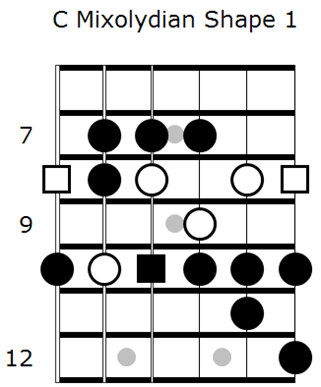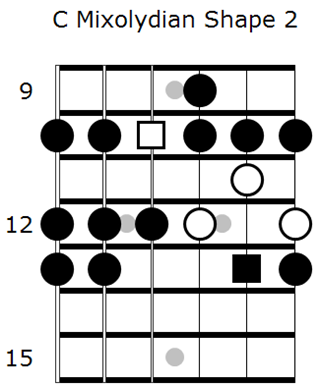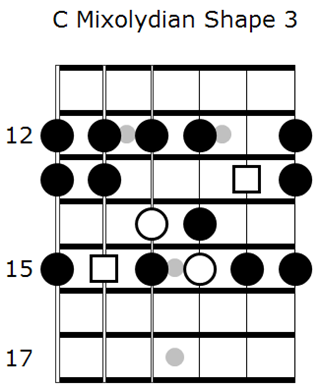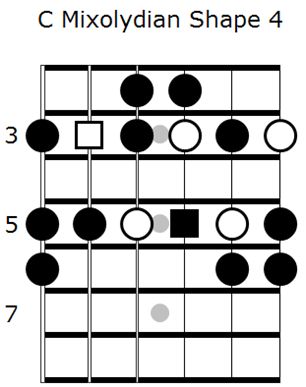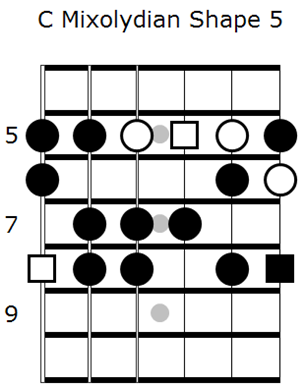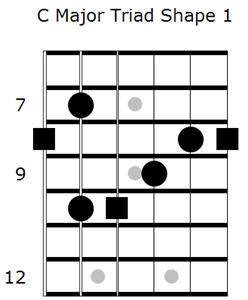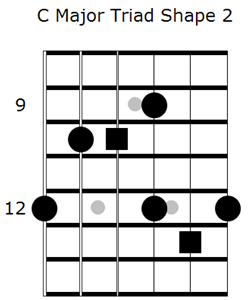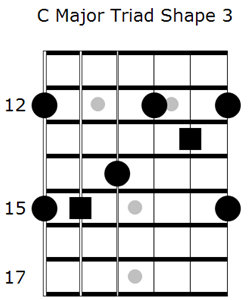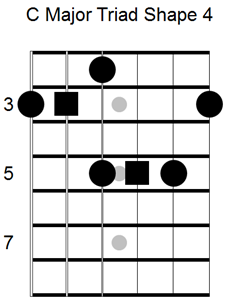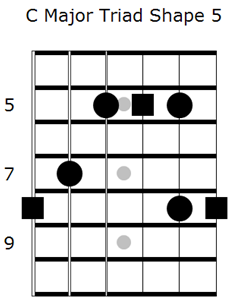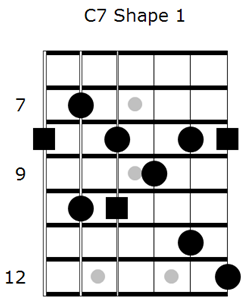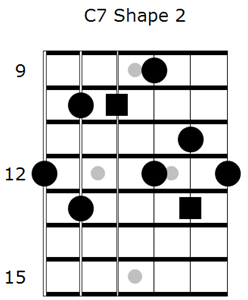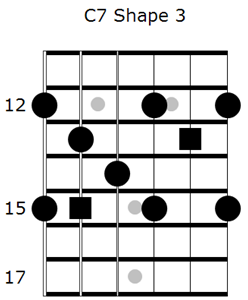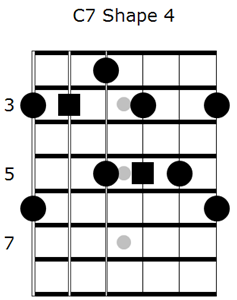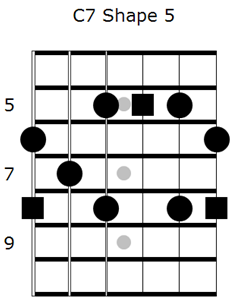The Mixolydian Mode: Essential Guitar Scales
Today’s Mixolydian Mode lesson follows on from the previous Dorian lesson and dissects the Mixolydian mode into it’s most important scale shapes, Triads, Arpeggios, progressions and licks!
Get stuck in and get creative!
Formula 1 2 3 4 5 6 b7
In a sentence: Bright and bluesy.
Parent Scale: Major
Mode: 5
More than a Feeling – Journey
Summer Song – Joe Satriani
Sweet Child ‘O’ Mine – Guns N’ Roses
The Mixolydian mode is most commonly used by combining it with both major and minor pentatonic scales. It is frequently heard in blues, rock and country guitar solos and very often heard in the playing of Derek Trucks, the Allman Brothers Band and Stevie Ray Vaughan. If you’re listening to a 12 bar blues and the mood lifts from a minor to a major sound, this is often created from either using major pentatonic scales or the Mixolydian mode.
The Mixolydian mode is similar to the major scale, however Mixolydian contains a b7 interval which takes some of the bright shine off the pure major scale. By ‘dulling down’ the major scale’s brightness, Mixolydian becomes more suitable for upbeat rock and blues.
C Mixolydian Scale Shapes
C Mixolydian Triad and Arpeggio Shapes
Triads
Arpeggios
Typical Chord Progressions
Backing Track Mixolydian 1:
Audio PlayerBacking Track Mixolydian 2:
Audio PlayerBacking Track Mixolydian 3:
Audio PlayerUseful Licks
Mixolydian Scale Lick 1:
Audio PlayerMixolydian Scale Lick 2:
Audio PlayerMixolydian Scale Lick 3:
Audio Player“The artists you work with, and the quality of your work speaks for itself.”
Tommy Emmanuel
© Copyright Fundamental Changes Ltd 2025
No.6 The Pound, Ampney Crucis, England, GL7 5SA


